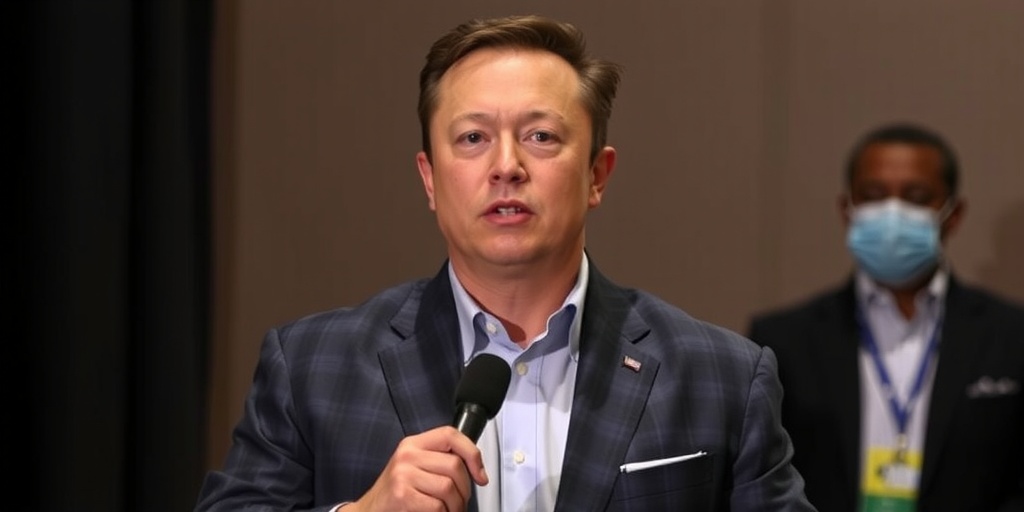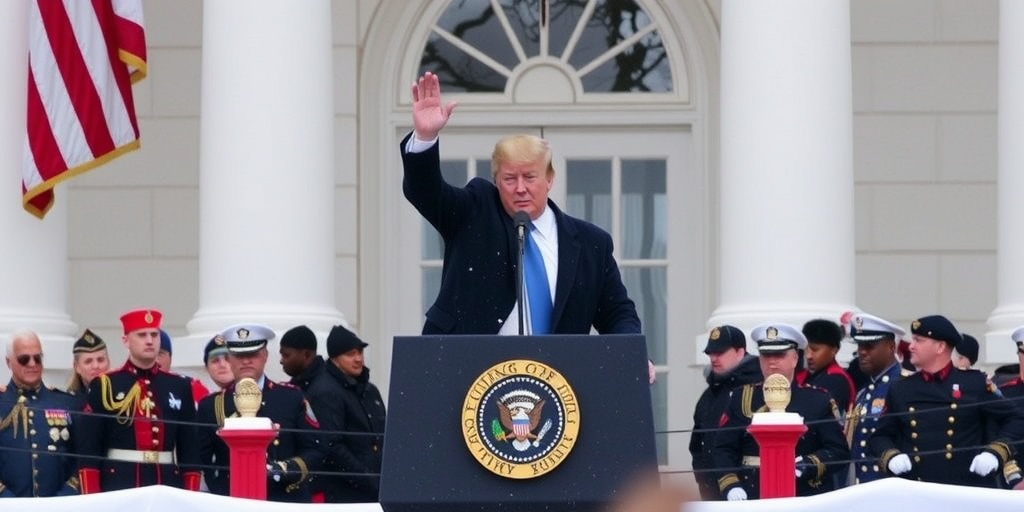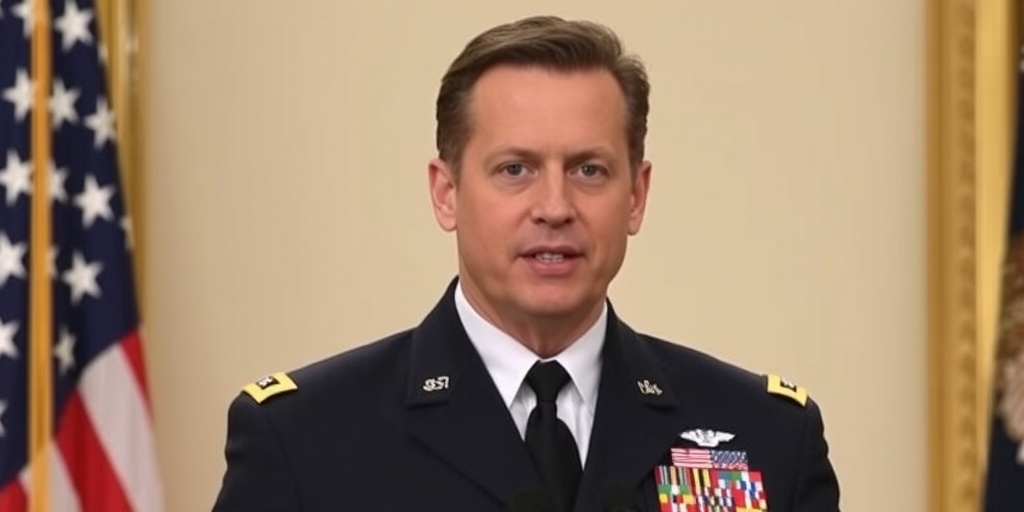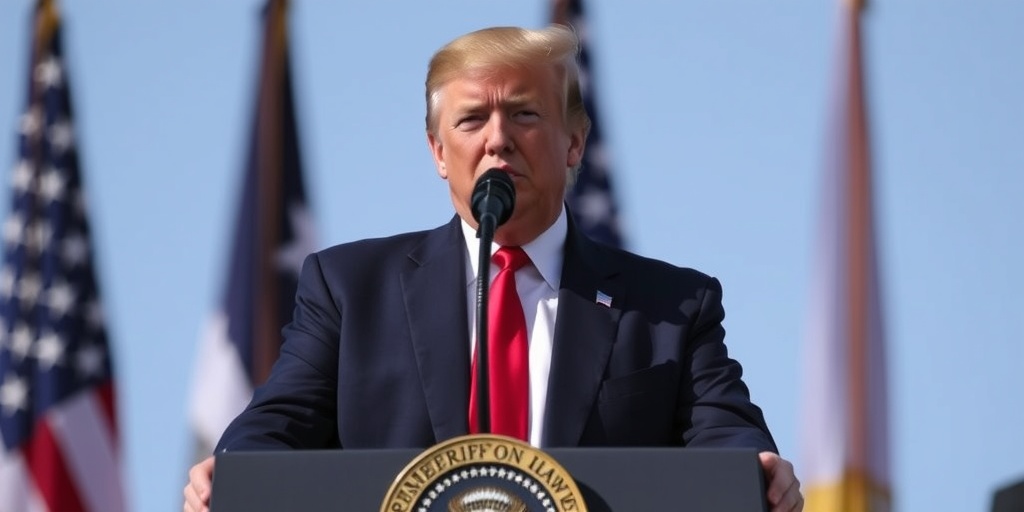Now Reading: Agencies Advise Staff to Defy Musk’s Ultimatum
-
01
Agencies Advise Staff to Defy Musk’s Ultimatum
Agencies Advise Staff to Defy Musk’s Ultimatum

In an unprecedented move, several officials from the Trump administration have urged employees at various federal agencies to disregard Elon Musk’s recent directive, which commanded them to summarize their weekly accomplishments. Musk’s insistence on receiving these summaries came with an alarming ultimatum: comply or face termination. Despite his influence and the authority granted to him by the Trump administration, resistance has emerged from key government sectors, including the FBI, the State Department, and the Office of the Director of National Intelligence.
On Saturday evening, as Musk’s directive reverberated throughout the federal landscape, officials within these agencies acted swiftly to countermand his demands. Tibor Nagy, the acting undersecretary for management at the State Department, issued a firm response to his department’s employees, asserting, “No employee is obligated to report their activities outside of their department chain of command.” This sentiment was echoed by Tulsi Gabbard, the director of the Office of National Intelligence, who cautioned intelligence community officers against responding to Musk’s email, citing the sensitive and classified nature of their work.
Further dissent arose from FBI leadership, where Kash Patel, the director, instructed employees to “pause any responses” to Musk’s demands, emphasizing that the FBI manages its review processes internally. In law enforcement circles, the shock was palpable; many expressed disbelief over such a sweeping request that neglected essential factors like legal confidentiality and ongoing investigations. Supervisors quickly advised their teams to await further guidance before taking action, reflecting the confusion and pushback against Musk’s ultimatum.
The situation was similarly tense at the Department of Defense, where personnel were directed not to comply with Musk’s order. Darin S. Selnick, the acting official responsible for personnel matters at the Pentagon, stated, “The Department of Defense is responsible for reviewing the performance of its personnel and will conduct any reviews according to its own protocols.” This further solidified the notion that federal agencies strongly disputed Musk’s authority to impose his will upon their operations.
Musk’s original email, sent out with an implicit threat of termination, sparked significant backlash from federal worker unions. The American Federation of Government Employees, representing a vast pool of government employees, indicated that Musk’s directive lacked legitimacy and signaled its intent to formally request a retraction from the Office of Personnel Management (OPM). Union President Everett Kelley characterized Musk’s actions and those of the Trump administration as demonstrating “utter disdain for federal employees.”
Concerns over potential breaches of security arose particularly within the intelligence community. Multiple agencies, including the National Security Agency, issued warnings that engaging with Musk’s request could inadvertently uncover classified information, revealing sensitive details to hostile entities. Despite Musk’s insistence that employees refrain from including classified material in their summaries, many experts warned that disclosing unclassified work could still expose valuable insights into critical national security projects.
Representative Mike Lawler, a Republican from New York, publicly questioned the feasibility of Musk’s mandate while still supporting his overarching efforts for governmental efficiency. Lawler remarked, “I don’t know how that’s necessarily feasible,” alluding to the complexities introduced by federal employee union contracts. Nevertheless, he acknowledged the necessity of ensuring that each government department functions effectively.
As federal employees grappled with Musk’s demands, legal analysts expressed skepticism regarding the foundation of his authority to pursue mass firings based on responses to his email. Neither the White House nor OPM provided immediate comments on Musk’s threat, leaving many in the government unsure of the legality behind such drastic measures.
In the face of mounting criticism, Musk took to social media, framing his demand as “a very basic pulse check” on government efficiency. He also promoted unfounded claims about widespread fraud within the federal workforce, suggesting that nonexistent or deceased individuals were unfairly collecting paychecks. Responding to a supporter’s assertions, Musk claimed, “They are covering immense fraud,” echoing a familiar narrative casting doubt on the integrity of federal employment practices.
Musk’s rhetoric mirrors similar unfounded claims regarding Social Security payments, wherein a report from the inspector general for the Social Security Administration contested the idea that significant numbers of deceased individuals were receiving benefits. Ultimately, the precarious situation underscores the tension between private sector influence and public sector governance, raising critical questions about authority, accountability, and the complex dynamics of American bureaucracy.
Stay Informed With the Latest & Most Important News
Previous Post
Next Post
-
 01New technology breakthrough has everyone talking right now
01New technology breakthrough has everyone talking right now -
 02Unbelievable life hack everyone needs to try today
02Unbelievable life hack everyone needs to try today -
 03Fascinating discovery found buried deep beneath the ocean
03Fascinating discovery found buried deep beneath the ocean -
 04Man invents genius device that solves everyday problems
04Man invents genius device that solves everyday problems -
 05Shocking discovery that changes what we know forever
05Shocking discovery that changes what we know forever -
 06Internet goes wild over celebrity’s unexpected fashion choice
06Internet goes wild over celebrity’s unexpected fashion choice -
 07Rare animal sighting stuns scientists and wildlife lovers
07Rare animal sighting stuns scientists and wildlife lovers





















